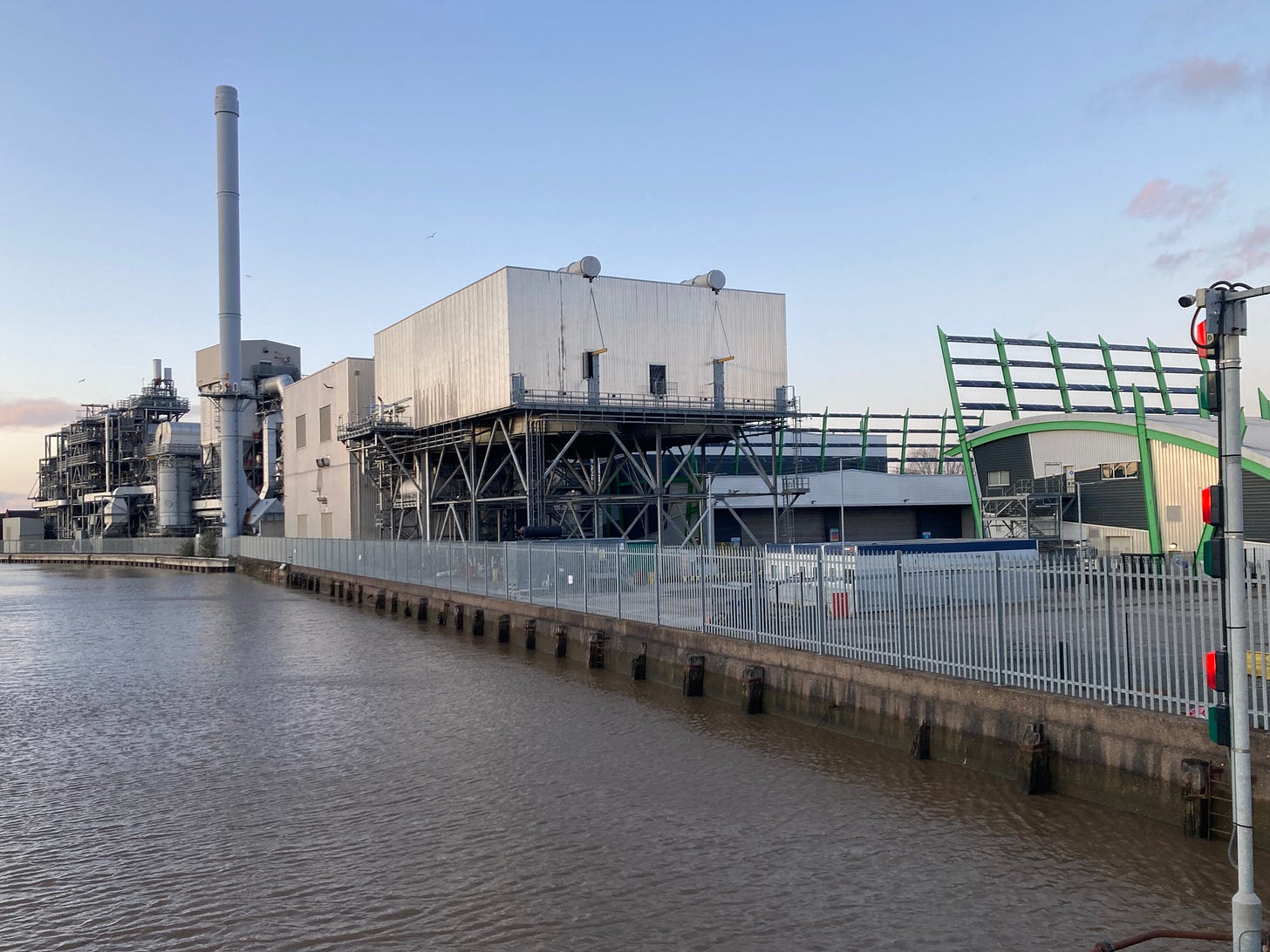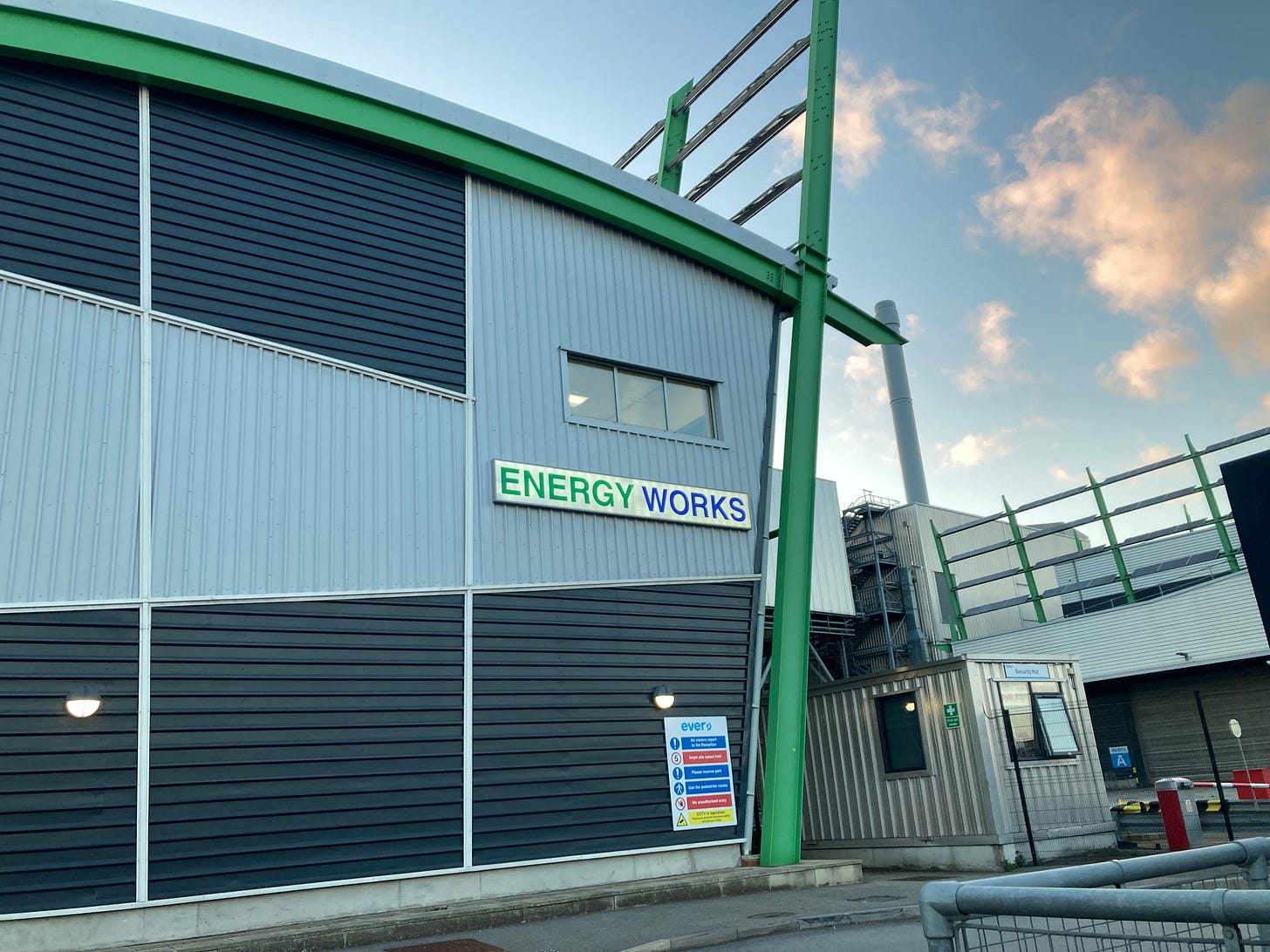The uncertain future of the £200m carbuncle on Cleveland Street
How a green dream turned into a dark nightmare
As founder of his own civil engineering company, Charlie Spencer knows a thing or two about big bespoke building projects.
Over the years, his Hull-based Spencer Group has become a specialist contractor operating across several sectors ranging from rail and bridges to port-based engineering. A passionate advocate for Hull and the Humber region, he’s even been awarded the OBE for services to business and the economy.
In 2011, he outlined his vision for a new hi-tech waste-to-energy facility capable of generating enough power to run a sizeable part of a city the size of Hull while significantly reducing the amount of household waste going into landfill.
Instead of being earmarked for a relatively remote location, the proposed Energy Works project would be built in Cleveland Street in the middle of the city’s historic industrial heartland next to the River Hull.
“A development of this scale and complexity naturally poses many challenges and all those involved are to be congratulated for their commitment and perseverance in taking the project through to this point,” he said.
“We are very pleased to have assembled an impressive group of partners to fund and deliver Energy Works, enabling us to establish a facility with outstanding green credentials in our home city which is becoming recognised as the UK’s leading centre for renewable technologies.”
Named Energy Works, the plant was vigorously promoted as a bold step into the future of green technology.
Regenerating a brownfield site, it would divert 240,000 tonnes of municipal and commercial waste from landfill every year, using an advanced gasification processing system to provide enough electricity to power the equivalent of 43,000 homes and help lower the UK’s carbon emissions.
Rooftop solar panels would supply energy to the building itself while its riverside location would provide an opportunity for some waste to arrive by barges rather than being transported by road. In addition, an on-site academy would welcome local schools to learn about creating sustainable infrastructure and renewable energy technology.
Just over a decade later, the £200m Energy Works is mothballed and facing an uncertain future while the company behind it - Biomass UK No. 1 LLP - is in administration after the pension fund which owns it voluntarily pulled the plug, writing off an investment worth £177m in the process.
So how did Charlie Spencer’s green dream turn into a dark nightmare?
To be fair to him, the problem hasn’t been the Energy Works building which was constructed by his Spencer Group but the specialist gasification technology installed inside. In short, it never worked.
Before Energy Works opened, nearby residents were promised there would be no noise or disruption from its operation but, as it turned out, they faced a wait to find out.
The facility was expected to be fully operational in 2018, but significant delays in the commissioning process eventually led the plant’s then operator Energy Works Hull Ltd (EWH) to terminate the main internal fit-out contract with MW High Tech Projects UK in March 2019.
When it did finally open a year later, the earlier promises made to residents failed to materialise.
A high-pitched noise became a regular fixture when the plant was operational while a major fire in September 2020 led the Environment Agency to ask nearby residents and businesses to keep windows and doors closed as thick black smoke billowed from the side of the building. Then there were the flies.
“They were the worst”, Steve McCloud told me when I met him for a chat in his neighbouring hot food takeaway and cafe which stands in the shadow of the huge plant.
“We are surrounded by a lot of places dealing with waste but we never had a problem with flies until Energy Works opened. It went from the usual summer situation when you get the odd one coming in to having problems with flies for eight or nine months, and I’m talking about huge numbers. You would not have believed how many on some days.
“Eventually, I spoke to one of the managers and he just said: ‘How do you know they’re our flies?’ I thought he must be joking. I said ‘I’ve been here since 2008 and there were never any problems before you opened’.”
However, Steve’s problems paled in comparison to those being experienced by Energy Works itself.
After abandoning gasification, the plant switched to burning refuse-derived fuel but it still struggled to reach anywhere near its operational capacity
Meanwhile, the messy legal aftermath of the contract termination was being played out in court. In July 2019, EWH started proceedings against MW High Tech claiming damages in respect of the delays and the consequences of terminating the contract. They also submitted a claim for defects in some of the work carried out. The total claim amounted to £164.5mn.
Following a trial in the Technology and Construction Court, Judge Edward Pepperall’s initial findings were mainly in favour of EWH. Before a final judgement was made, MW High Tech immediately settled and paid £75mn in agreed damages.
By then MW High Tech had made its own claim for damages in proceedings against Outotec, the company which it had sub-contracted to design and supply most of the advanced gasification at the Hull plant. The claim alleged no fewer than 15 items of defective work.
This claim was the focus of a second judgement handed down by Judge Peperall in May 2023, which again went against MW High Tech.
However, a second action by the company against Outotec is heading for another trial in the same court later this year. This time it is alleging fraudulent and negligent misrepresentation by Outotec over the capability of the technology, which MW High Tech says “failed disastrously” in Hull and at two other new waste processing plants where it was also the main contractor. In the Hull case, MW High Tech are claiming damages of over £165mn.
Outotec denies the claims but last summer July an application to strike them out as an abuse of process was dismissed by the Court of Appeal, paving the way for the forthcoming trial.
A month later in August last year the shutters came down at Energy Works, with operation at the plant suspended. The move came after it was reported the struggling complex only processed 30,941 tonnes of waste in 2023 – way below the 240,000-tonne annual capacity it was designed for.
Posting on the Energy from Waste Network website, sector consultant Paul Winter said: “The gasification process is often considered to be a fairly difficult and unforgiving process requiring complex biomass feedstocks.
“What’s more, it can be challenging to optimise the gasification process due to the complex interactions between process steps, including the cleaning of syngas to remove impurities like tar, particles, and toxic gases. This not only makes the process difficult but also costly, with the potential to drive up operational costs and eat into profits.
“Aviva’s independent review showed that the Hull plant switched to burning solid-recovered fuel and refuse-derived fuel when its gasification technology failed to perform
“But, changes to the feedstock mixture can cause huge instabilities in an already unstable process, leading to costly errors and sharp declines in syngas yield.”
The huge financial losses in Hull and elsewhere could not be sustained. In December Biomass No. 1 Biomass UK appointed a liquidator as part of a voluntary winding-up process initiated by Aviva Investors, one of the UK’s biggest pension funds. As well as Hull’s Energy Works, the administration also covered two other loss-making energy-from-waste in plants in Lincolnshire and South Wales also owned by the same fund.
Together, the three plants represented a combined investment of £368m which was now being written off by Aviva. One individual shareholder quoted recently by the Guardian newspaper accused the pension fund of making “calamitous investments” on behalf of its UK investors.
A statement of affairs published by Biomass No. 1 UK LLP liquidators makes for interesting reading.
It identifies just £49,999 as cash at bank, making it the only certain immediate asset potentially available to the split between creditors. As well as Avivia Investors’ £177m stake in the company, other listed creditors include Energy Works’ most recent operations and maintenance contractor Evero Energy (£761,754), Power Consulting Midlands Ltd (£86,733) and Associated British Ports (£52,950).
The Energy Works building is listed as fixed asset with a book value of £52.8m. However, its estimated re-sale value is listed as “uncertain”. It’s hard to imagine what it might be used for in the future.
Back in Steve’s cafe, he is also wondering about what lies ahead for the 12-acre site next door.
“I don’t want to knock it because I’ve had some good business from there, including a few big buffet orders”, he says. “I’ve always thought it was a good idea. Who can argue against turning waste into electricity? That’s a big positive, right? Even so, I’ve always said it was built in the wrong place.
“Maybe someone will make a go of it or just clear the site and start again.”



